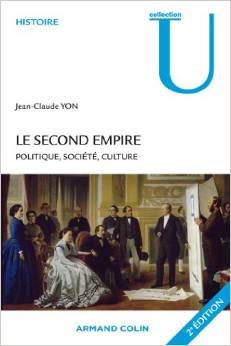History Prizes 2005
 FONDATION NAPOLÉON HISTORY GRAND PRIX
FONDATION NAPOLÉON HISTORY GRAND PRIX
Amiral MONAQUE, Trafalgar. 21 octobre 1805, Paris, Tallandier
In this book, Admiral Monaque sets out clearly and rigorously the political and naval context in which the confrontation of the Franco-Spanish and British fleets off Cape Trafalgar took place on 21 October, 1805. The author then gives an account of the battle in which eyewitness accounts form a counterpoint to his analysis of the battle. For Napoleon and his Spanish ally, Trafalgar was complete setback: more than 4,500 dead, 2,500 wounded, and 23 ships lost. British losses amounted to a mere 450 dead, (one of which the celebrated commander Admiral Horatio Nelson), 1,200 wounded and no ships lost. This is a complete study of the battle, and it includes many tables and frequent eyewitness accounts, not to mention maps and a plan of the battle.
Appendix 1: Principal characteristics of the ships at Trafalgar.
Appendix 2: The principal artillery on board 74-gun vessel.
Appendix 3: The crews of the French ships at Trafalgar.
Appendix 4: Tactics and signals.
Appendix 5: The legend of the man who killed Nelson.
Appendix 6: Losses.
 SECOND EMPIRE PRIZE
SECOND EMPIRE PRIZE
Jean-Claude YON, Le Second Empire. Politique, Société, Culture, Paris, Armand Colin
In France, the Second Empire (1851-1870) has long suffered from a bad reputation. For decades, all that was remembered from the reign of Napoleon III was the coup d’État of 2 December, 1851, “affairisme” (insider dealing), the frivolous “fête impériale” and the disaster of Sedan. The present work is neither an attempt to rehabilitate the Second Empire, nor to criticise it. It is a magisterial synthesis which, through its emphasis on the richness and diversity of the period, gives a vivid portrait of the whole epoch rather than simply of the regime from which it is known. The twenty-year period which forms the subject of the book is looked at through three different prisms, namely, through the political history of the regime, through French society under Napoleon III, and through the broad ranging cultural history of the period.
 PRIZE FOR A BOOK IN A LANGUAGE OTHER THAN FRENCH
PRIZE FOR A BOOK IN A LANGUAGE OTHER THAN FRENCH
Robert GOETZ, 1805: Austerlitz. Napoleon and the destruction of the Third Coalition, Greenhill Books
Tracing the historical route from Amiens to Pressburg, Robert Goetz gives even non-military historians a clear and measured view of the battle. His bibliography is detailed in French, German- and Russian- language source material (as befits a specialist of the Russian Army), and the books includes orders of battle, detailed maps, tables and many illustrations. With an explicit concentration on Prussian and Russian sources, this is a carefully argued and fascinating account of the battle.
 PRIZE FOR FICTION
PRIZE FOR FICTION
Armand CABASSON, Chasse au loup, Paris, 10/18, coll. Grands Détectives
In 1809, the Grande Armée returns to Austria, this time to Aspern. The young lieutenant Relmyer, of Austrian origin, returns to the place where four years earlier he was kidnapped with one of his companions from their orphanage days, Franz. The latter was found dead with a macabre smile cut into his face. Relmyer swore to find the culprit. When an orphan’s body is found on the battlefield, Captain Quentin Margont, accompanied as usual by his companions Lefine, Piquebois and Saber, decides to help Relmyer in his investigation. In Aspern forest, the wolf is still at large.
Here in this second novel, Cabasson gives another helping of all that was enjoyed in his first outing with our hero (La proie de l’officier). The style is very much his own, the pace is well regulated and the characters are all nicely drawn.
